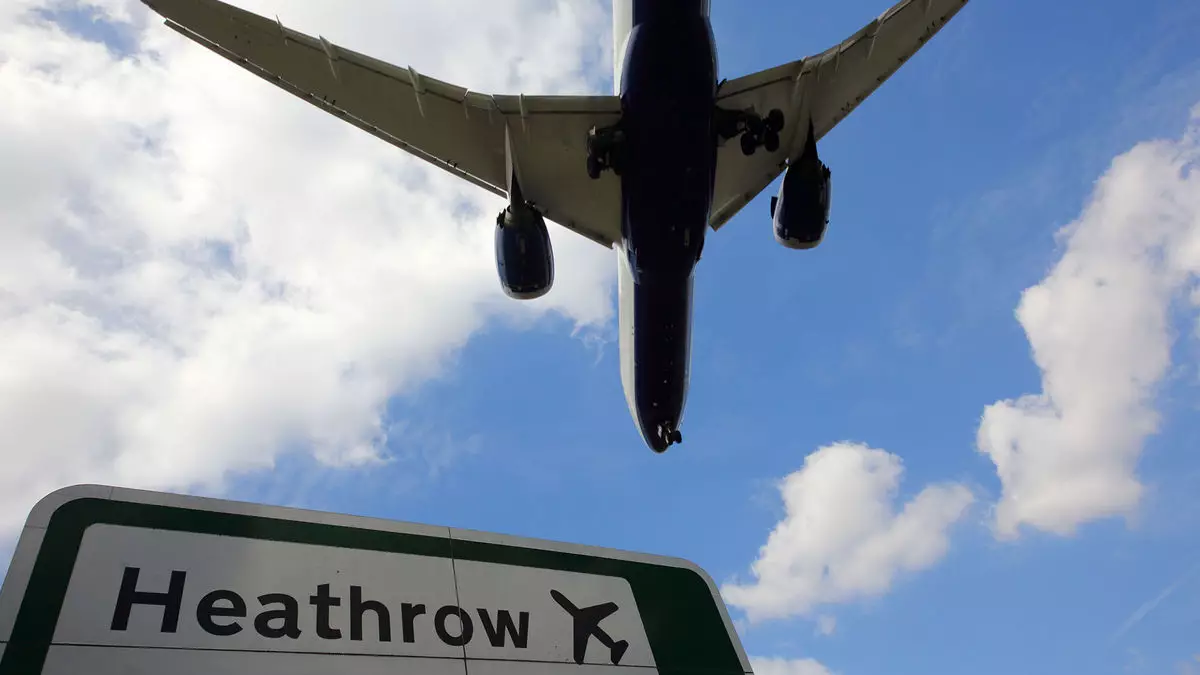In an age where time is money, and convenience is king, the recent pilot program at London Heathrow Airport signals a significant shift in international travel. Launched on February 4, 2023, the initiative is poised to eliminate some of the traditional inefficiencies that have long plagued connecting international passengers. Utilizing a system that allows travelers from American Airlines and Delta flying from Dallas-Fort Worth and Atlanta respectively to transit through Heathrow en route to a third destination—all while keeping their checked bags safe—this program could represent a monumental leap forward in the travel experience.
For years, countless U.S. travelers have experienced the frustration of reclaiming checked baggage and undergoing additional security screenings during layovers in the U.K. This pilot program represents a refreshing departure from that norm. Passengers landing in Terminal 3 who are connecting to British Airways flights in Terminal 5 can now feel the relief of bypassing the usual logistical hurdles. Gary Tomasulo, American Airlines’ chief security officer, reports that the feedback has been overwhelmingly positive, with many travelers saving between 30 and 40 minutes on what can often feel like a lengthy and cumbersome process. This kind of efficiency is not just a luxury; it serves as an essential component of enhancing the overall travel experience.
The Mechanism Behind the Magic
The One-stop Security initiative, as part of the pilot program, is not merely a matter of convenience; it also offers an intriguing glimpse into a future where international travel could be significantly streamlined. In this context, the U.S. Transportation Security Administration (TSA) has taken a proactive role by breaking down traditional barriers between overseas airports and U.S. standards. The pilot program operates under a framework established by Congress that opens the door for additional tests in various global locations, aiming to recreate this model beyond Heathrow.
While the immediate benefits are clear for outgoing passengers, the pilot program has also sparked discussions about future possibilities. The initial implementation will expand to include returning travelers, enabling connections through Dallas and Atlanta from Heathrow without the hassle of baggage claims or additional screenings. As a result, passengers only need to retrieve their bags upon arriving at their final destination, making international travel feel less like an obstacle course and more like a straightforward journey.
Implementing Enhanced Security Measures
The complexity of the One-stop Security program lies in the meticulous processes involved in aligning security standards between the U.S. and participating foreign airports. Achieving such collaborative fortitude between two countries is no small feat and necessitated years of discussions and negotiations. Nonetheless, experts in aviation security express confidence in the program’s potential, declaring that it could serve to elevate global travel standards. Ryan Propis, vice president of security and facilitation at the U.S. Travel Association, sums it up well: “It’s a game changer for aviation security.” This sentiment highlights the dual benefits of improved passenger experiences and heightened security measures that can go hand-in-hand.
Fostering a Culture of Efficiency
Brands like American Airlines are keenly interested in ensuring that this pilot program only serves as a starting point. Tomasulo has affirmed the airline’s commitment to extending these conveniences into major hubs across the United States. Proposed expansions into Newark, Miami, and Charlotte are indicative of a broader strategy to reshape the way Americans and international travelers navigate the skies.
Moreover, the existence of ancillary initiatives, such as Customs’ Remote Baggage Screening Initiative, underscores a strong commitment to looking for innovative solutions to age-old problems. Though these programs vary in complexity, they all aim to ease the stressors associated with connecting flights and border regulations.
However, challenges remain. A recent report by U.S. Travel emphasized the need for more nimble operations and improved coordination between TSA and Customs. Threads of bureaucracy continue to loom large, reminding stakeholders that while the pilot program is revolutionary, it is not yet a panacea. Proponents are urging Congress to not only continue support for such initiatives but to extend them beyond their current expiration date in 2028. This call to action reflects a growing appetite for a more interconnected and efficient travel landscape.
As the pilot program at Heathrow establishes itself as a potentially transformative force in international travel, the implications go far beyond mere convenience. They suggest a future where travel could be less daunting, more efficient, and unequivocally connected. With industry leaders, government officials, and travelers all invested in its success, the potential for One-stop Security to become a model for others worldwide beckons with thrilling possibilities. The journey toward a more efficient travel experience has only just begun, but the signs are already promising.

